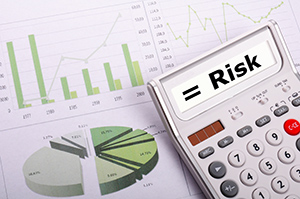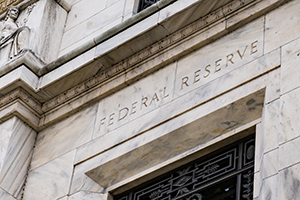My colleague Sam Millette, manager, fixed income on Commonwealth’s Investment Management and Research team, has helped me put together this month’s Market Risk Update. Thanks for the assist, Sam!
Commonwealth
Economic Risk Factor Update: November 2021
My colleague Sam Millette, manager, fixed income on Commonwealth’s Investment Management and Research team, has helped me put together this month’s Economic Risk Factor Update. Thanks for the assist, Sam!
Looking Back at the Markets in October and Ahead to November 2021
In October, the markets bounced back strongly, following a difficult September. Here in the U.S., all three major indices were up significantly. The Nasdaq and the S&P 500 gained more than 7 percent, and the Dow went up almost 6 percent. Developed markets showed a smaller gain, almost 2.5 percent, and emerging markets eked out a small rise of 1 percent. Although stocks did well, bonds had another bad month, dropping slightly as interest rates rose.
Monday Update: Job Growth Gets Back on Track in October
Last week’s important economic data releases were focused on business confidence, the Fed’s November meeting, and the October employment report. While most of the news was positive, the jobs report was the highlight, as the pace of hiring improved notably during the month of October. This week will be slightly quieter, with October’s inflation reports and a first look at consumer sentiment in November serving as highlights.
The Halloween Effect: Trick or Truth?
It was so good to see the spooky season back in full swing last week. Many of the Halloween events unfortunately canceled in 2020 were back this year. Ghosts, witches, princesses, and others in costume were making the neighborhood rounds, yards were decorated with Halloween props, and many other fall festivities were back.
The Fed Makes a Move Back to Normal
After yesterday’s piece on how many economic indicators are starting to move back to normal, it was nice to have the Fed ratify my point. The Fed has been buying $80 billion per month of Treasury securities and $40 billion per month of mortgage-backed securities. Yesterday, the Fed announced that, effective immediately, it would be cutting $10 billion per month from its Treasury purchases and $5 billion from the mortgage purchases for at least the next two months. Plus, it has the expectation that the drawdown will continue into next year—and possibly accelerate. This is a necessary first step in taking monetary policy back to normal.








 Olivia has joined Riverstone Wealth Partners providing knowledge gained from her 15 plus years in management. Olivia has provided services within the financial industry, mortgage industry, and in the non-profit sector. Olivia thrives on providing stellar customer service, accomplishing all goals set before her, and doing the right thing. Olivia’s degree in Business Management allowed her to take on roles that ultimately led her to Riverstone Wealth Partners. Olivia is currently pursuing another degree with an emphasizes in Human Resources, which she has learned over time… is her passion!
Olivia has joined Riverstone Wealth Partners providing knowledge gained from her 15 plus years in management. Olivia has provided services within the financial industry, mortgage industry, and in the non-profit sector. Olivia thrives on providing stellar customer service, accomplishing all goals set before her, and doing the right thing. Olivia’s degree in Business Management allowed her to take on roles that ultimately led her to Riverstone Wealth Partners. Olivia is currently pursuing another degree with an emphasizes in Human Resources, which she has learned over time… is her passion!





 Ashley has been working in the customer service field since she started her first job at age 16. For the past ten years she worked in an office setting handling accounts payable and receivable as well as some receptionist work. She is very excited to learn more about the investment field.
Ashley has been working in the customer service field since she started her first job at age 16. For the past ten years she worked in an office setting handling accounts payable and receivable as well as some receptionist work. She is very excited to learn more about the investment field. Alec joined Riverstone after starting out his post college career on the operations side of an international logistics company working as an account executive. Graduating with a BA in Economics from the University of Illinois at Urbana-Champaign, he quickly developed a strong interest in the financial world. A lifetime resident of the Chicagoland area, Alec is an avid fan of his hometown sports teams. He is also an enthusiast of outdoor activities like fishing, camping, and hiking whenever possible.
Alec joined Riverstone after starting out his post college career on the operations side of an international logistics company working as an account executive. Graduating with a BA in Economics from the University of Illinois at Urbana-Champaign, he quickly developed a strong interest in the financial world. A lifetime resident of the Chicagoland area, Alec is an avid fan of his hometown sports teams. He is also an enthusiast of outdoor activities like fishing, camping, and hiking whenever possible. Director of Operations
Director of Operations Registered Relationship Assistant
Registered Relationship Assistant Wealth Advisor Assistant
Wealth Advisor Assistant Wealth Advisor
Wealth Advisor Wealth Advisor
Wealth Advisor Wealth Advisor
Wealth Advisor Wealth Advisor / Registered Principal
Wealth Advisor / Registered Principal Wealth Advisor / Registered Principal
Wealth Advisor / Registered Principal